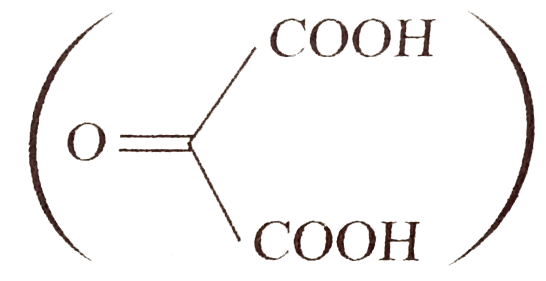A solution of acetone in ethnol
Obeys Raoult's law
Shows a negative deviation from Raoult's law
Shows a positive deviation from Raoult's law
Behaves like a near ideal solution
The correct Answer is:C
To determine whether a solution of acetone in ethanol shows positive deviation, negative deviation, or obeys Raoult's law, we can follow these steps:
Step 1: Identify the nature of acetone and ethanol
- Acetone (CH₃C(=O)CH₃) is a polar molecule due to the presence of a carbonyl group (C=O), which creates a dipole moment.
- Ethanol (CH₃CH₂OH) is also a polar molecule and has the ability to form hydrogen bonds due to the presence of the hydroxyl group (–OH).
Hint: Look for the functional groups in the molecules to determine polarity and potential interactions.
Step 2: Analyze the intermolecular forces
- In ethanol, strong hydrogen bonding occurs between the hydroxyl groups of different ethanol molecules.
- In acetone, the primary intermolecular forces are dipole-dipole interactions, which are weaker than hydrogen bonds.
Hint: Compare the strength of the intermolecular forces in each component.
Step 3: Consider the interactions when mixed
- When acetone and ethanol are mixed, the hydrogen bonds in ethanol are disrupted. This leads to a decrease in the attractive forces between ethanol molecules.
- The new interactions formed (between acetone and ethanol) are dipole-dipole interactions, which are weaker than the hydrogen bonds that were present in pure ethanol.
Hint: Think about how mixing affects the existing intermolecular forces.
Step 4: Determine the type of deviation from Raoult's law
- If the interactions between the components (acetone and ethanol) are weaker than those in the pure components, the solution will exhibit positive deviation from Raoult's law.
- Since the hydrogen bonding in ethanol is stronger than the dipole-dipole interactions between acetone and ethanol, the overall interaction in the solution (AB) is weaker than the interactions in the pure components (AA and BB).
Hint: Recall the conditions for positive and negative deviations: positive deviation occurs when the solution's interactions are weaker than those in the pure components.
Conclusion
Based on the analysis, the solution of acetone in ethanol shows positive deviation from Raoult's law.
Final Answer: The solution of acetone in ethanol shows positive deviation from Raoult's law.
- Acetone (CH₃C(=O)CH₃) is a polar molecule due to the presence of a carbonyl group (C=O), which creates a dipole moment.
- Ethanol (CH₃CH₂OH) is also a polar molecule and has the ability to form hydrogen bonds due to the presence of the hydroxyl group (–OH).
- In ethanol, strong hydrogen bonding occurs between the hydroxyl groups of different ethanol molecules.
- In acetone, the primary intermolecular forces are dipole-dipole interactions, which are weaker than hydrogen bonds.
- When acetone and ethanol are mixed, the hydrogen bonds in ethanol are disrupted. This leads to a decrease in the attractive forces between ethanol molecules.
- The new interactions formed (between acetone and ethanol) are dipole-dipole interactions, which are weaker than the hydrogen bonds that were present in pure ethanol.
- If the interactions between the components (acetone and ethanol) are weaker than those in the pure components, the solution will exhibit positive deviation from Raoult's law.
- Since the hydrogen bonding in ethanol is stronger than the dipole-dipole interactions between acetone and ethanol, the overall interaction in the solution (AB) is weaker than the interactions in the pure components (AA and BB).
Based on the analysis, the solution of acetone in ethanol shows positive deviation from Raoult's law.
Similar Questions
A solution of acetone in water show negative deviation from Raoult’s law, Which of the following statement regarding this solution is incorrect ?
View SolutionThe Henry's law constant for a solution of acetone in chloroform is 0.2 bar when the solution is at 308 K. Calculate the value of vapour pressure of acetone when its mole fraction is 0.14.
View SolutionWhat type of azeotropic mixture will be formed by a solution of acetone and chaloroform ? Justify on the bassis of strenght of intermolecular interactions that develop in the solution.
View SolutionAt 35∘C , the vapour pressure of CS2 is 512 mm Hg and that of acetone is 344 mm Hg . A solution of CS2 in acetone has a total vopour pressure of 600 mm Hg. The false statement amongst the following is
View SolutionAn aqueous solution of acetone, CH3COCH3 is 10.00% acetone by weight. What is the mole percentage of acetone in this solution:
View SolutionAt 35∘C, the vapour pressure of is and that of acetone is . A solution of CS2 in acetone has a total vapour pressure of . The false statement amongst the following is:
View SolutionCompound (A)(C12H16) on oxidation with acidic KMnO4 solution gives acetone and
 . Identify compound (A).
. Identify compound (A).
View SolutionA mixture of acetone and methanol can be separated by
View SolutionPredict the product of reaction of
acetone with Tollen's reagent.
View SolutionPredict the product of reaction of
acetone with Tollen's reagent.
View Solution
